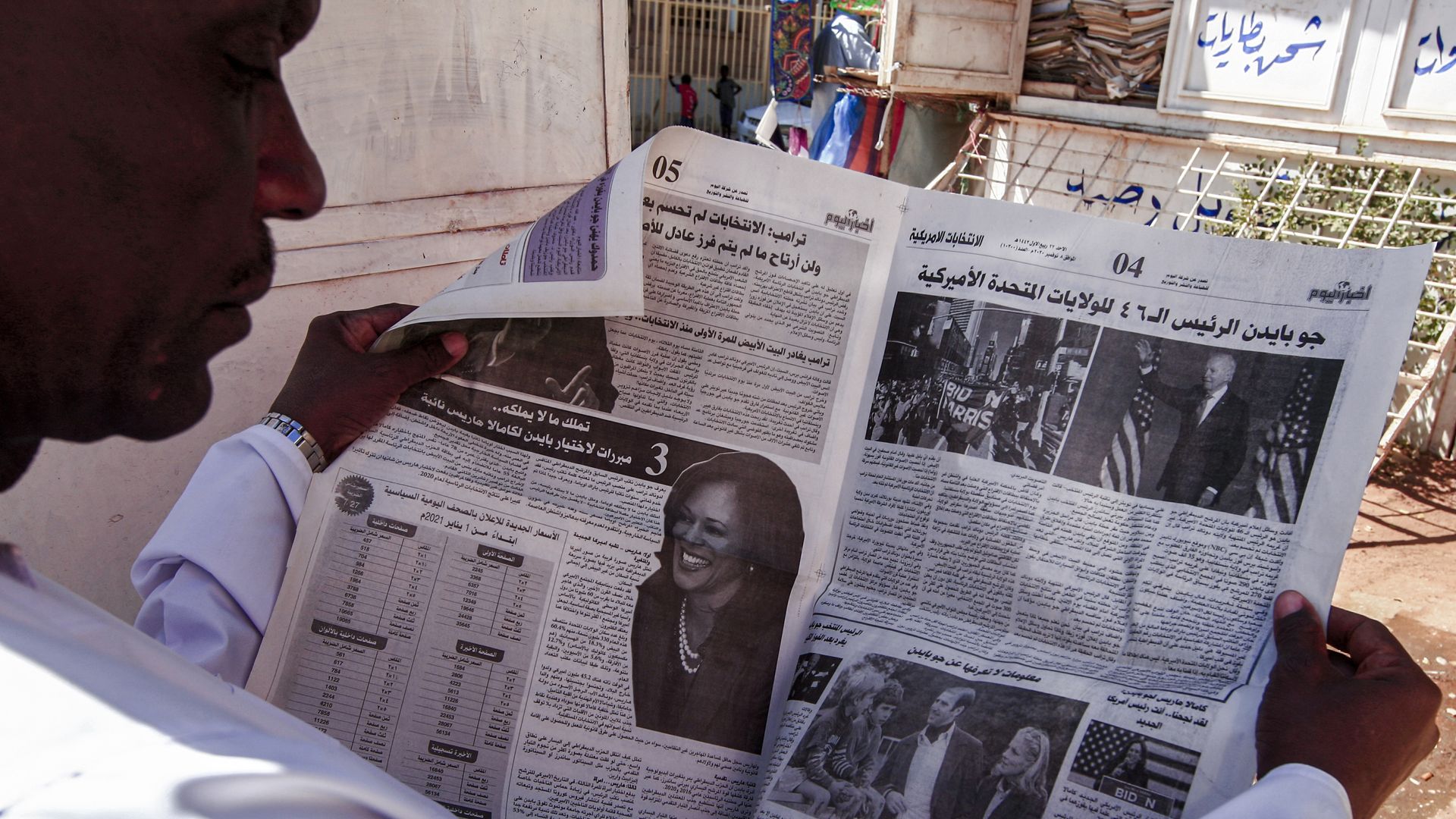Frustrations in Sudan over U.S. delays on terror list deal
Add Axios as your preferred source to
see more of our stories on Google.

Reading about the U.S. election results, in Khartoum, Sudan. Photo: Ebrahim Hamid/AFP via Getty
Khartoum — Most Sudanese thought until recently that getting off the U.S. state sponsors of terrorism list was a done deal. Now they realize it's more complicated.
Why it matters: One crucial element of the trilateral deal between the U.S., Israel and Sudan was the restoration of Sudan's sovereign immunity, which would protect the country from future terror-related lawsuits.
- While Sudan will soon be officially removed from the terror list, it still needs the U.S. Congress to pass the immunity legislation in the coming days, or else foreign investors may steer clear of Sudan for fear of entanglement in multi-billion dollar terror claims.
Background: Prime Minister Abdulla Hamdok's government agreed to pay compensation to resolve the existing lawsuits, which were tied to the harboring of al-Qaeda by former dictator Omar al-Bashir.
- The government argued that without the compensation payments there would be no delisting and no sovereign immunity legislation from Congress.
The other side: That decision angered many Sudanese, who felt they should not pay for the deeds of the previous regime. Quite to the contrary, some argued they should be rewarded for toppling Bashir.
- As one Sudanese activist asked on Twitter: “Will Sudan be required to pay for the sinking of Titanic to get off the terrorism list?”
- Some argued that Hamdok should have continued the fight in court rather than succumb to "blackmail." Others asserted that Sudan should have refused to pay a dime, especially at a time of great economic distress.
- All of the critics had something in common: a lack of trust in the U.S. to follow through on its delisting promises, and a suspicion that Washington would keep moving the goalposts, as it has many times in the past.
What’s next: Negotiations between the Trump administration and Democratic Senators over the immunity bill are still ongoing with time running out.
- The main stumbling bloc is the demand by families of 9/11 victims to be able to file lawsuits against Sudan, even though there is no evidence Sudan was involved in the attacks in any way.
- A sense of concern and even despair can be felt among the public and in government circles in Khartoum, particularly as the economic situation becomes more dire.
State of play: There are signals that the three-way deal with Israel and the U.S. is starting to bring Sudan out of the cold.
- Executives from Boeing visited Khartoum last week to discuss reviving the national airline, and an Israeli economic delegation also arrived for talks.
- The Israelis are even lobbying Congress to pass the Sudan immunity bill — a move that will dull the remaining opposition in Sudan to the normalization process.
Even if the immunity bill fails, Sudan is unlikely to back away from normalization, in part because Israel has Washington’s ear and can deliver the goods for the East African nation.
